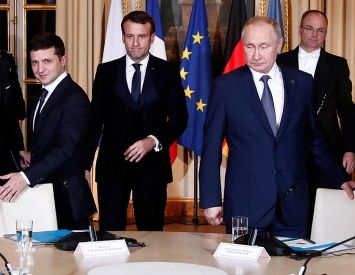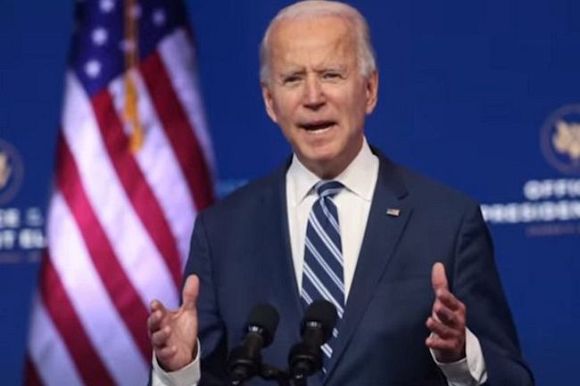As 2023 unfolds, we fear that American policy will continue to be characterised by both mission creep and the absence of any sort of diplomatic engagement with Russia.
Throughout the course of the war, the Biden Administration has slowly, steadily and even stealthily increased America’s involvement. Calls from Kyiv for more weapons have, at every turn, been met with President Biden’s acquiescence.
Meantime, Congress has continued in the decades-long abdication of its constitutional responsibilities, opting instead to act as a rubber stamp on ever-increasing amounts of financial and military assistance to Ukraine. All the while, Kyiv’s appetite has grown larger with the eating.
First went the Javelin anti-tank missiles, sent to Ukraine by former President Donald Trump. Then came the Russian invasion and demands for M777 Howitzers; Bradley Fighting Vehicles; Patriot missiles; HIMARS; NASAMS; M1 Abrams tanks; and long-range GLSDBs.
Kyiv is now demanding the delivery of F-16 fighter jets.
Will we soon see the demand for American ground troops? If so, will we witness any political will in Washington to refuse such a request?
Whatever the case, it is worth keeping in mind that the true beneficiaries of Washington’s spending bonanza have been executives in the C-suites of Northrop Grumman, Lockheed Martin, Raytheon, and General Dynamics, as well as those companies that are part of the network of what we might term “soft power for-profits”.
Withal, there remains an alternative path the Biden administration might take as the year unfolds.
Writing in 1947, at the beginning of the first Cold War, the journalist and grand strategist Walter Lippmann observed:
‘The history of diplomacy is the history of relations among rival powers, which did not enjoy political intimacy and did not respond to appeals to common purposes. Nevertheless, there have been settlements.’
American diplomacy has too often been an exercise in strong-arming our friends (should they dare question Washington’s prerogatives) or toppling (either covertly or overtly) our perceived enemies. Under President Biden and his immediate predecessors, the practice of American diplomacy has been discounted and marginalised; even, thanks to the effects of the largely contrived Russiagate scandal, criminalised.
And while it is true that the ultimate responsibility for the war in Ukraine falls on the Russian President, Vladimir Putin, it is painful to recall that Biden and his predecessors were presented with numerous opportunities to avoid the current catastrophe.
Yet when presented with such opportunities, to back the Minsk peace process, for instance, Washington has unfailingly demurred. When presented with a mainly reasonable draft treaty by the Russians in December of 2021, the Biden administration refused to even consider it. When presented with peace plans after the war began, Washington and its allies channelled the spirit of Melville’s Bartleby and declared that they would “prefer not to”.
At this juncture, with Russia at the start of a new offensive, we believe diplomatic engagement is the only moral and realistic policy available to President Biden and his advisors.
We hope they pursue it.
Katrina vanden Heuvel is the editorial director and publisher of The Nation and is president of the American Committee for U.S.-Russia Accord (ACURA). She writes a weekly column at the Washington Post and is a frequent commentator on U.S. and international politics. Find her on Twitter @KatrinaNation.
James W Carden served as an advisor to the Special Representative for Intergovernmental Affairs at the State Department during the Obama administration and has been a frequent contributor to publications on the Left, Right and Centre. He is a member of the board of ACURA.
This article is distributed by Globetrotter in partnership with the American Committee for U.S.-Russia Accord (ACURA).
Related Articles
- War in Ukraine: Gearing up for end of winter fighting
- Putin claims Ukraine is not a country — history begs to differ
- Ukraine war: Putin takes losses, vows to make a comeback
- No one knows what’s really happening in Ukraine — here’s why
- Russia may defeat Ukraine — but at incalculable human cost
 This work is licensed under a Creative Commons Attribution-NonCommercial-NoDerivs 3.0 Australia License
This work is licensed under a Creative Commons Attribution-NonCommercial-NoDerivs 3.0 Australia License
Support independent journalism Subscribe to IA.













